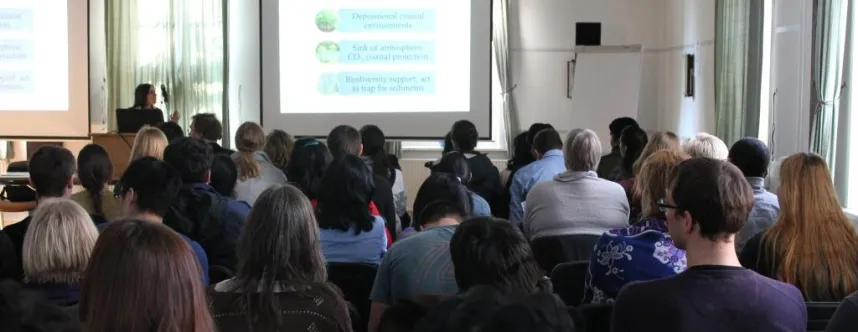MOLIFE RESEARCH SEMINAR Prof. Raffael Schaffrath
Regulation of tRNA anticodon loop modifications – new lessons from yeast
Robust evidence now indicates that the primary role in yeast of Elongator, a protein complex originally implicated in transcription, lies with modification of transfer RNAs (tRNAs). Particularly, Elongator decorates position 5 in wobble uridine (U34) bases of a subset of tRNA anticodons to ensure proper decoding of the genetic information in messenger RNAs (mRNAs) during translation. Hence, one may expect Elongator is permanently active for accurate tRNA functioning and proper de novo protein synthesis at all times. However, data showing that U34 modifications oscillate in response to various stimuli, suggest otherwise. In support of the option the Elongator pathway may be regulated, I like to discuss recent findings from several research groups including our own showing that Elongator communicates with accessory proteins (Kti11-Kti14/Hrr25) related to its U34 modification function. Moreover, and equally important, Elongator undergoes dynamic phosphorylation which depends on kinase Hrr25/Kti14, phosphatase Sit4 and Kti12. Kti12 helps recruit kinase Hrr25 to holo-Elongator and apparently, belongs to the P-loop family of kinases and related nucleotide binders. How Kti12 may be involved in Elongator function and whether it acts to regulate the tRNA modifier complex are key issues I intend to cover in my seminar talk.
Further Info:
Speaker: Prof. Raffael Schaffrath, Universität Kassel, Fachgebiet Mikrobiologie, Germany
Host: Prof. Dr. Christian Hammann, Professor of Biochemistry, Focus Area: Health - Life Sciences & Chemistry, Email: c.hammann@jacobs-university.de, Tel: +49 421 200-3247, Link to Homepage: https://www.jacobs-university.de/ses/chammann/ribogenetics
Prof. Raffael Schaffrath
Universität Kassel
Subject to be announced
